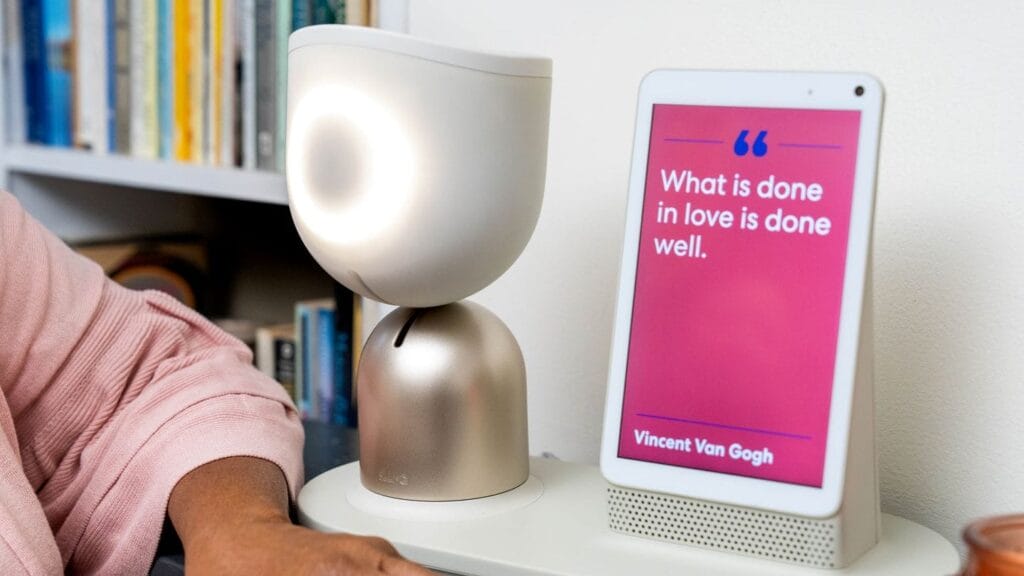
Over the past few years, robotics developers have found conclusively that those high-tech companions are a welcome addition to senior living communities.
Now, developers are further augmenting their robot pals with new tricks and personality.
One of the companies at the forefront of introducing robots to long-term care settings, Intuition Robotics, is releasing its third iteration of ElliQ, which was conceived as a way to address older adults’ feelings of loneliness and isolation.
One of the major innovations of the new model is a lighter, smaller design that is easier for older adults to handle, the company said. Even the earlier iterations of ElliQ were small, table or desktop-mounted devices that somewhat resemble the Pixar lamp.
While they continue to fine-tune the robot’s capabilities, Intuition also is learning new insights about how interaction with ElliQ differs between demographics, Intuition Vice President of Strategy Assaf Gad told the McKnight’s Tech Daily on Friday.
“The majority of ElliQ users are women,” Gad said. “And while everyone engages with ElliQ, rural users use it as a communication tool for family members, while in more urban areas, we’re seeing it used more for health and medication reminders.”
Gad cautioned that those trends are not definitive but said the company does have enough data to provide a meaningful snapshot of where the assistive robots market is at.
In addition to the updated design, ElliQ 3.0 also has new artificial intelligence capabilities that allow for more advanced conversation, Gad said. The robot now also can connect users for Bingo games and other synchronized events, the company said.
“We want to help older adults have a more meaningful conversation [with ElliQ],” Gad explained. “This allows us to learn more about their needs. And that empowers older adults to stay more independent.”
One way ElliQ could achieve this goal is by collaborating with older adults on cooking recipes, Gad noted. The new version of the robot can remember and draw on past conversations to help build recipes for a gluten-free or diabetic diet, or it can use that context to advise on how someone can combine ingredients that are in the refrigerator.
While ElliQ’s conversational abilities are becoming more intelligent, the company has remained steadfast in the contention that the device is not a replacement for human interaction, but rather a tool to help foster it.
“We try to bring trust and empathy to the table,” Gad said, “but it’s always a combination of the human and robotic touch.”


